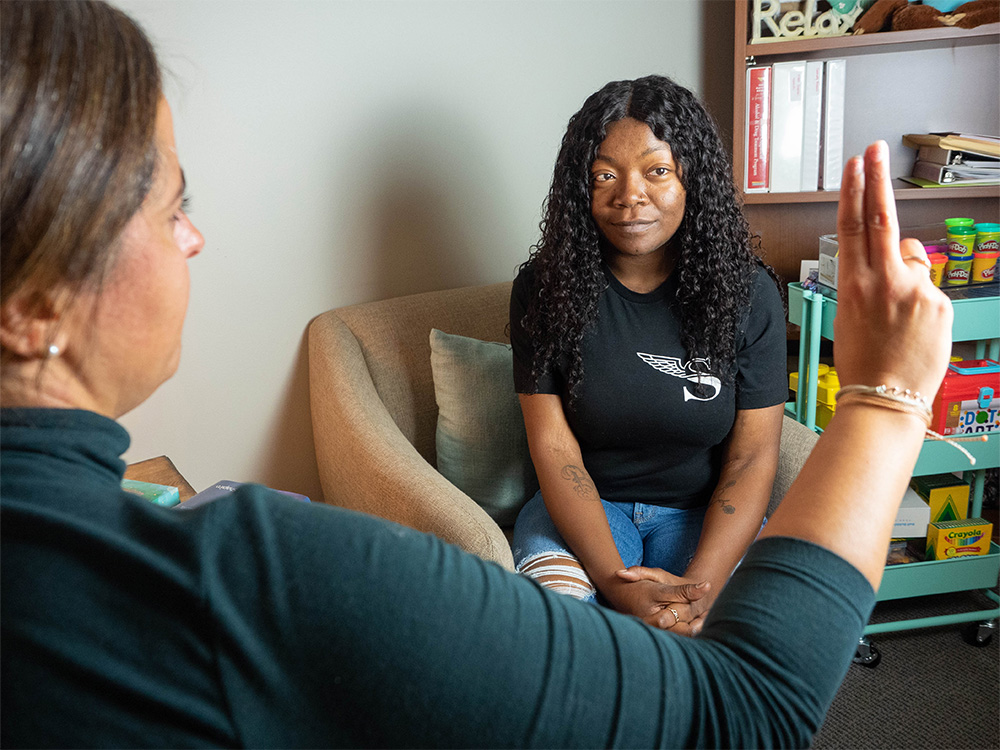Our Services
With two branches to the practice, you can tailor our services to best address your particular concerns. Our Psychologists and Sexologist offer individual consultation and can also collaborate to offer you a wrap-around service that addresses both your mental health and sexual wellness needs.
All sessions run from between 50 - 60 minutes. They can be offered via telehelth or face to face at our Malvern and Newcastle locations.
Psychological Therapy
Psychosexual Education & Coaching
Our integrative and holistic model of mental health care offers you a range of evidence-based modalities depending on your individual needs. Our psychologists are skilled in working with a range of issues and challenges:
Addiction, Anxiety, Depression, PTSD, C-PTSD, Grief & Loss, Personality Disorders, Anger Management, OCD, Chronic Pain, Life transitions and ageing, Neurodiversity, Gender identity, DID and dissociative disorders, Attachment trauma, Relationship issues, Stress management, Family conflict, Self-esteem issues, Disordered eating, and Personal development.
Our approach incorporates the latest in neuroscience and evidence-based research to address the underlying causes of your distress. We understand that the mind-body connection is an integral component to mental health and wellness. We focus on neurodevelopment and attachment, the quality of the therapeutic relationship, and somatic (body-based) awareness in working with you to develop the tools to navigate your own healing and personal growth. SSP practitioners endeavour to co-create a space with you in which you can begin to feel and express more of who you truly are. Our modalities/approaches include:
Somatic Integration & Processing (SIP), Eye Movement Desensitization & Reprocessing (EMDR), Schema Therapy, Dialectical Behaviour Therapy (DBT), Mindfulness, Interpersonal Neurobiology, Parts work (IFS/Ego State interventions), Psychodynamic psychotherapy, Polyvagal Theory (PVT), and Cognitive-Behaviour Therapy (CBT).
We believe in a collaborative approach to psychosexual education and coaching where you can authentically discuss deeply personal experiences in a supportive environment. Providing medically accurate, evidence and rights-based, context-sensitive knowledge is the cornerstone of this branch of our practice. Established empirical research confirms that human sexual expression is incredibly diverse and that consensual sexual expression within a framework of human rights and social justice is a natural part of the human experience.
We aim to create a connective and non-pathologizing space for all genders, orientations and identities to explore a vast range of topics including:
General sexual health and wellness, Pleasure exploration and embodiment, Alternative relationship models, LGBTQIA+ support, Gender expression and identity, STI experience and disclosure, BDSM and Kink Practices, Sex work support, Sexual expression with chronic pain, illness and/or disability, sexuality and menopause, sexuality and grief, mis-matched libido, infidelity, body image, healthy and effective relational communication.
Sessions with our sexologist are tailored to each client based on their particular history, needs, abilities and identities. Our approach to psychosexual education and coaching often includes discussion, activities and the implementation of action plans aligned with client driven aspirational goals. Sexual actualization is an inherently subjective, self-defined and often lifelong endeavor. Our coaching philosophy holds that this process can also be expansive and joyful when approached with compassion and curiosity.

What is Eye Movement Desensitization & Reprocessing (EMDR)?
EMDR is a trauma processing therapy developed to help people heal from past aversive life experiences across eight phases of treatment. It uses a technique called bi-lateral stimulation to initiate information processing in the brain when it has become stuck due to unresolved trauma.
Bi-lateral stimulation involves activating each hemisphere of the brain alternately using eye movements, sound, tapping, or buzzers (held in each hand) while your therapist has you focus on components of the trauma memory, such as image, cognition (thought), emotion, and body sensation.
Developed by Francine Shapiro in the 1980’s, EMDR has progressed from being a protocol used primarily with adult single-incident trauma (PTSD) to a robust therapeutic modality that has been demonstrated to effectively treat a range of symptoms and issues, including developmental trauma and C-PTSD.
A clinician typically assesses if EMDR therapy is a suitable modality of treatment based on a client’s individual readiness. Working toward healing and resolution of complex trauma can be particularly nuanced and deep work and may require a more gradual and paced approach.